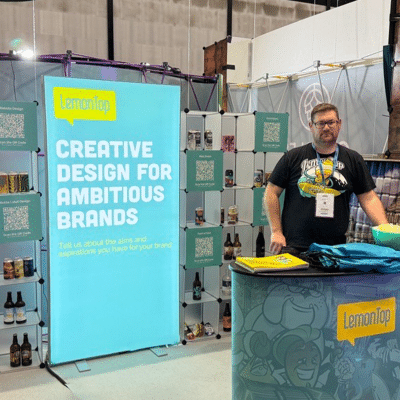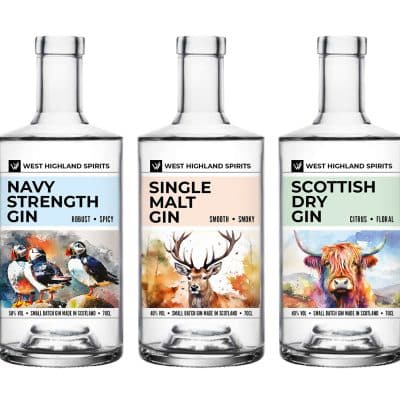We can’t all be Neo and have all our skills and experiences downloaded to us like the Matrix, but we can thin-slice and make decisions just as fast. Have you ever understood something really quickly or known what to do in a split second? In a nutshell that is you thin-slicing and you’ve been doing it all of your life?
Why did I spend 56000 hours learning my profession to thin-slice?
Having spent over 56000 hours coding, designing, and learning new software, I hadn’t realised that I was developing this technique of thin-slicing. I often used to say to people that it will take me no time at all to learn new software but was always aware that someone else would develop their skills beyond mine. This isn’t to say I am naturally cleverer than everyone else, I am probably not, but it is down to how quickly I could onboard the knowledge I needed to start using the software proficiently, then pass on the knowledge to others. From the early days of using Quark Xpress, through the first versions of InDesign then up to the full Adobe Creative Suite, the excitement of learning new software was the buzz I needed to drive this. This may seem like an arrogant point of view, but we all do this all the time. We just need to make ourselves aware of it.
So, what actually is going on here?
We all have the ability to make judgements really quickly and in the majority of cases, these judgements are correct. We probably know them as our gut feeling, woman’s intuition, as well as many other terms that tell us we are making the right choice. You may have asked someone, “Are you okay?”, not as a general term, but out of concern. This happens because we all pick up on minor facial expressions that last a split second. We are so attuned to visual experiences and particularly human expressions that we instantly see them, but the other person has no idea they are giving off these signals. These instinctive behaviours are like a basic Lego set. We have all the pieces and can make some things really quickly, but due to many factors we take different paths and fine-tune these skills and we all build something different.
When someone says to me, “I need a logo design ”, I will already be many stages down the line in my own mind as to what they are looking for but, as a team, the combination of this process only delivers better results. So, every experience, influence, job, and design project has allowed me to do things I do now and look back and appreciate every moment. We see this type of thin-slicing everywhere. I can drive a car so I can drive other vehicles really easy. I have learnt another language, so others are easy to pick up. This is the reason sportspeople seem to be so good at other sports.
How can this help me?
Trusting yourself to make the right decision is something we all contend with daily, and most of the time your gut instinct is right. There are so many areas of life you can apply this to so you can become better and more successful in whatever you do. This does not mean that if you don’t possess the attributes to become a great sportsman then suddenly you will. What it does mean though is it gives you a distinct advantage. For example, a prospective employer will look at every aspect of an applicant and their application, but understanding their reactions, mannerisms and body language are key ways when you thin-slice it can instinctively help.
Your gut instinct is the primitive part of your brain keeping you from taking risks or making the wrong decisions. Understanding these feelings and using them to your strength will help you in meetings and in your day-to-day life. As the world is visual, we often make these decisions all the time. Remember the old sayings, “first impressions count”, or “you don’t get a second chance to make a first impression”? These are very true but what if you could have a second chance? Could you really trust your instinct to make the right choice? We’ve probably all seen the TV shows Blind Date, Sexy Beasts, The Masked Singer and Love is Blind where they have to make choices based on not being able to see the other person. What if your next interview was behind a screen and only the second interview was in person, how different all of our careers might be?
Should I thin-slice in today’s world
It is really easy to say we shouldn’t make a lot of these decisions, but this is primitive human behaviour that we can’t change, no matter how much we condition ourselves not to do it. The key thing to remember here is this is a basic human skillset and can be fine-tuned, subject to the influences of your environment, to do amazing things. Think about what would happen if you could go back to your childhood. Mine was in the early 80s when I got my first computer and sat in front of the TV watching adverts. My love for both started here and over the duration of time I enabled myself to quickly develop new computer skills and enjoy the dynamic of fast thinking advertising environment’s and now I have a career in advertising using Apple Macs.
Take a look at where you are now in your career. Your dedication to the path has probably given you skills that to others, seem impossible. You can probably assess situations in a millisecond. We once had a problem with our broadband and over several years and different engineers, it couldn’t be fixed. One of the final engineers came out to see us and knew in an instant what it was, and this information was relayed back to head office. Head office and their lack of knowledge meant it never got fixed but the engineer who came out knew what it was and could have fixed it. The reason he knew was that he was ex-military, and while out in war zones you couldn’t call in and say “Sorry the broadband is off, let me put you on hold while we look for you!”, only to get an engineer come out 3 days later and say nothing is wrong. This engineer had to fix it there and then, as lives depended on it. The pressure of being in war zones ensuring there was continuous communication links had allowed his thin-slicing to excel. One look at our broadband and he knew. But like I said, it never got fixed.
Practise thin-slicing today and measure the results
Understanding this ability and knowing when it is happening is really important and will help you track how accurate you are. This isn’t always precise as there are so many other factors that come into play but on the whole, trust your instinct. Often the fear of being wrong or over analysing creates a fog over our decision making. A good example of this is seen in football when the player is heading towards the goal. The primitive instinct of decision making and all those years of practice have enabled these players to thin-slice and make the right decision in a fraction of a second. This decision making is so quick there probably hasn’t been any thought needed to process it. With all this experience do they miss, or do they score? There are still lots of factors that can affect the outcome but ultimately at the moment, they process a thought. ‘What if I miss?’, the fog appears, and they are unlikely to score. If they don’t think about it, they will probably score.
For those of you who watch Dragon’s Den, they make an instant decision on if that person will get investment or not. From their body language, the pitch, how they interact with the dragons, our thin-slicing of them may alter or stay true.
Take a look at the job you do. Ask yourself what instinctive decisions you make on a daily basis. Have they become more accurate with experience? See if you can improve your decision making by analysing them. Ultimately trust yourself to make them before considering applying any logic that may change your mind.
You may never even reach this part of the blog as you’ve already made up your mind about what it is about in the first line. But if you’ve reached this far then thank you, I hope you found this informative, but tell me, did you get a gut feeling you would get here from the start?





